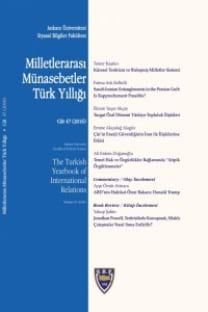Social Construction of Power in Turkish Democratic System: Turkish Armed Forces and Its Perceived Power
Social Construction of Power in Turkish Democratic System: Turkish Armed Forces and Its Perceived Power
Theories of social construction are involved in a range of suppositions about the origin of social phenomenon disseminating in various social contexts. Within different conceptualizations of power and power relations between actors, Barnesian analysis argues that the socially constructed knowledge that is distributed over the society dictates the extent of the power relationship – creating an expectation from the actors involved. The knowledge that is embedded, and accepted by the individuals becomes the reality simply because it is articulated is being real – self-fulfilling its promise. The role of the military in Turkish politics bears the aspect of socially constructed power in relation to the state, especially since the military intervention of 1960 and the subsequent role of the military in Turkish state affairs. It is argued throughout the paper that the reasons of the intervention included that the military establishment was expected to intervene – regardless of their intention – based on the accepted knowledge that the Armed Forces were powerful; a knowledge that was embedded and selffulfilled its own assertion throughout the years.
Keywords:
Social construction, Power, Political power, Turkey, Contemporary Turkish Politics Turkish Armed Forces,
- ISSN: 0544-1943
- Yayın Aralığı: Yıllık
- Başlangıç: 1960
- Yayıncı: Ankara Üniversitesi Siyasal Bilgiler Fakültesi Uluslararası İlişkiler Bölümü
